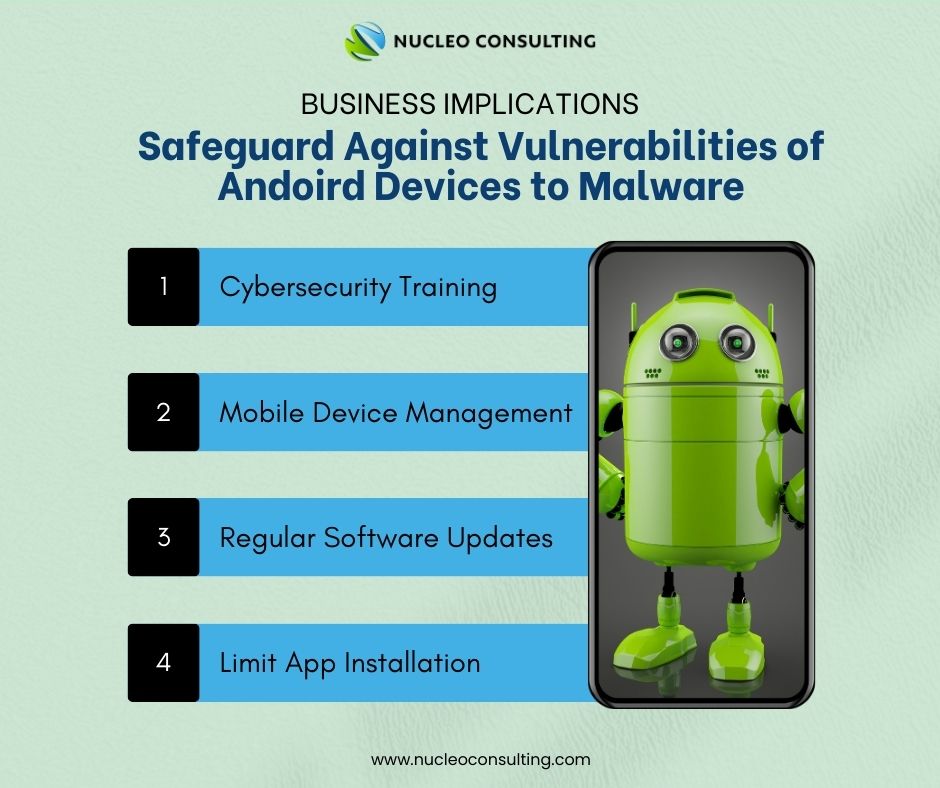In today’s digital age where businesses increase their reliance on technology, Android devices have become an essential part of business operations, providing employees with the flexibility and mobility required to stay connected and to increase productivity. However, this increased reliance on Android devices also comes with a growing threat – malware. As the number of Android users continues to increase, so does the risk of malicious attacks.
In this article, we will explore the vulnerabilities of Android devices to malware and discuss the potential business implications.
Android’s Open Ecosystem
Android’s open ecosystem, which grants its users flexibility and customization, is one of its greatest strengths. However, it is also a significant factor contributing to its vulnerability. Unlike the closed iOS environment, Android allows users to download and install apps from various sources, not just the official Google Play Store. While this freedom is amazing for its users, it also exposes devices to a higher risk of malware infiltration.
Common Vulnerabilities
- Third-Party Apps and APKs: Many Android users turn to third-party sources or Android Package Kits (APKs) to access a wider range of applications. Unfortunately, these alternative stores often lack the rigorous security measures present in the official Google Play Store, making it easier for malware-laden apps to infiltrate devices.
- Outdated Software: Android fragmentation, where different devices run on various versions of the operating system, leaves many devices without the latest security patches. Outdated software is a prime target for malware developers who exploit known vulnerabilities to gain unauthorized access.
- Phishing Attacks: Android devices are vulnerable to phishing attacks, where users are tricked into providing sensitive information or downloading malicious content such as fake Apps or APKS. These attacks often come in the form of deceptive emails, messages, or websites, targeting unsuspecting users.
Business Implications
- Data Breaches: Malware on Android devices can lead to data breaches, jeopardizing sensitive business information. This can have severe consequences, including financial losses, damage to the company’s reputation, and potential legal consequences.
- Productivity Loss: Malware can disrupt normal business operations, causing downtime and affecting productivity. Infected devices may require removal from the network, which may lead to delays in critical tasks and business processes.
- Financial Impact: Rectifying the aftermath of a malware attack can be costly. Businesses may need to invest in cybersecurity measures, conduct forensic investigations, and potentially compensate clients for any data breaches, all of which can strain financial resources.
- Reputation Damage: A malware attack not only affects the targeted organization but can also damage its reputation built over the years. Clients and partners may lose trust in a business that cannot protect its digital assets, leading to a loss of business opportunities and customer loyalty.
Risk Preventions
To safeguard against the vulnerabilities, businesses should adopt a proactive approach such as the following:

- Cybersecurity Training: Provide regular cybersecurity training to employees to educate them on potential threats, safe browsing habits, and the importance of avoiding suspicious downloads.
- Mobile Device Management (MDM): Implement MDM solutions to enforce security policies on company-distributed devices to monitor device activity, and remotely manage and wipe devices in case of a security breach.
- Regular Updates: Ensure that all Android devices are running the latest software updates and security patches to address known vulnerabilities.
- Limit App Installation: Limit app installations to trusted sources such as the official Google Play Store. Restrict third-party Apps and APK downloads to prevent the installation of malicious/ unauthorized applications.
As businesses increasingly rely on technology for their day-to-day operations, it is crucial to recognize and address any vulnerabilities that come with this reliance. By understanding the risks and implementing proactive cybersecurity measures, businesses can protect themselves from the potential business implications of malware attacks.
Balancing the freedom of the Android ecosystem with robust cybersecurity practices is essential to maintain a secure and productive digital environment for businesses in the evolving landscape of technology.
IT Tips | Android | Cybersecurity | Phishing | Malware | Cyber Threats